Rehman Malik: A blinkered vision
A short analysis by Gateway House's Sambuddha Mitra Mustafi on why wooing the hawks is a self-defeating exercise for Pakistan's politicians.
A short analysis by Gateway House's Sambuddha Mitra Mustafi on why wooing the hawks is a self-defeating exercise for Pakistan's politicians.
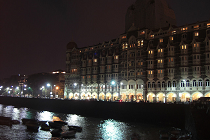 Courtesy: Swami Stream/Flickr
Courtesy: Swami Stream/Flickr
Four years after the 26/11 terrorist attacks, Mumbai remains almost as vulnerable. The city is losing its expansiveness, while terrorism drives a wedge between the Hindu and Muslim communities in bindaas Mumbai. Are India’s secular traditions strong enough to emerge from such assaults with its integrity assured?
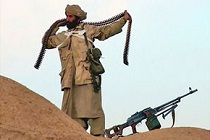 Courtesy: movieevery/WikimediaCommons
Courtesy: movieevery/WikimediaCommons
In the backdrop of a gradually weakening Quetta Shura, the Haqqani network has emerged as a powerful extremist group operating in the Afghanistan-Pakistan theater. How can the UN Security Council's recent sanctions against the Haqqanis act as a potential de-motivator for this Pakistan-based terrorist outfit?
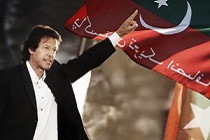 Courtesy: Imran Ghazali/WikimediaCommons
Courtesy: Imran Ghazali/WikimediaCommons
Imran Khan is coming to India to speak at the World Economic Forum to be held from 6 to 8 November in Gurgaon. What does Pakistan’s potential next prime minister have in store for India?
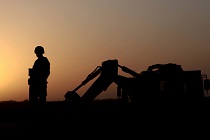 Courtesy: Isafmedia/Flickr
Courtesy: Isafmedia/Flickr
As the NATO troops prepare to pull out of Afghanistan in 2014, India is already positioned to take on a larger, pro-active role, which can radically alter the balance of power in South Asia. However, what will determine the future of security in the region, is how India and Afghanistan deal with Pakistan.
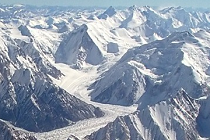 Courtesy: Guilhem Vellut/WikimediaCommons
Courtesy: Guilhem Vellut/WikimediaCommons
There have been many discussions on the need to de-militarise the Siachen Glacier. Why have India and Pakistan suddenly begun to believe that they were mistaken in holding on to the region all this while? What are the possible ramifications of de-militarising this strategic location?
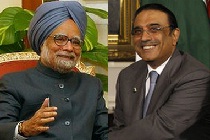 Courtesy: Cropbot, Russavia/WikimediaCommons
Courtesy: Cropbot, Russavia/WikimediaCommons
Manmohan Singh is likely to visit Pakistan later this year. As the first visit of an Indian Prime Minister to the country in 8 years, it will be a significant event. The timing and the agenda of the PM’s visit, however, raise a few questions.
Understanding the rationale behind India’s diplomatic decisions is essential for policymakers and citizens alike, so as to take better decisions in the future. Gateway House interviews former Ambassador to Italy, K. P. Fabian, to discuss how India's assessment of policy values the spoken word over context.
 Courtesy: Open Democracy
Courtesy: Open Democracy
The NATO withdrawal from Afghanistan in 2014 should be done tactically so that it doesn't destabilize Pakistan. Despite having accepted Pakistani help in the past, the Taliban might empathize with Pakistani Pashtuns and spread the very secessionist tendencies which Pakistan’s Afghan policy was designed to prevent.
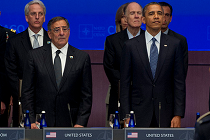 Courtesy: Secretary of Defense/Flickr
Courtesy: Secretary of Defense/Flickr
Pakistan’s refusal to re-open NATO supply routes into Afghanistan has made the country an instant pariah in the U.S. at the NATO Summit. The communiqué released confirms a withdrawal of 130,000 troops by as early as mid-2013. Can the remaining soldiers help maintain peace when a force much larger could not?